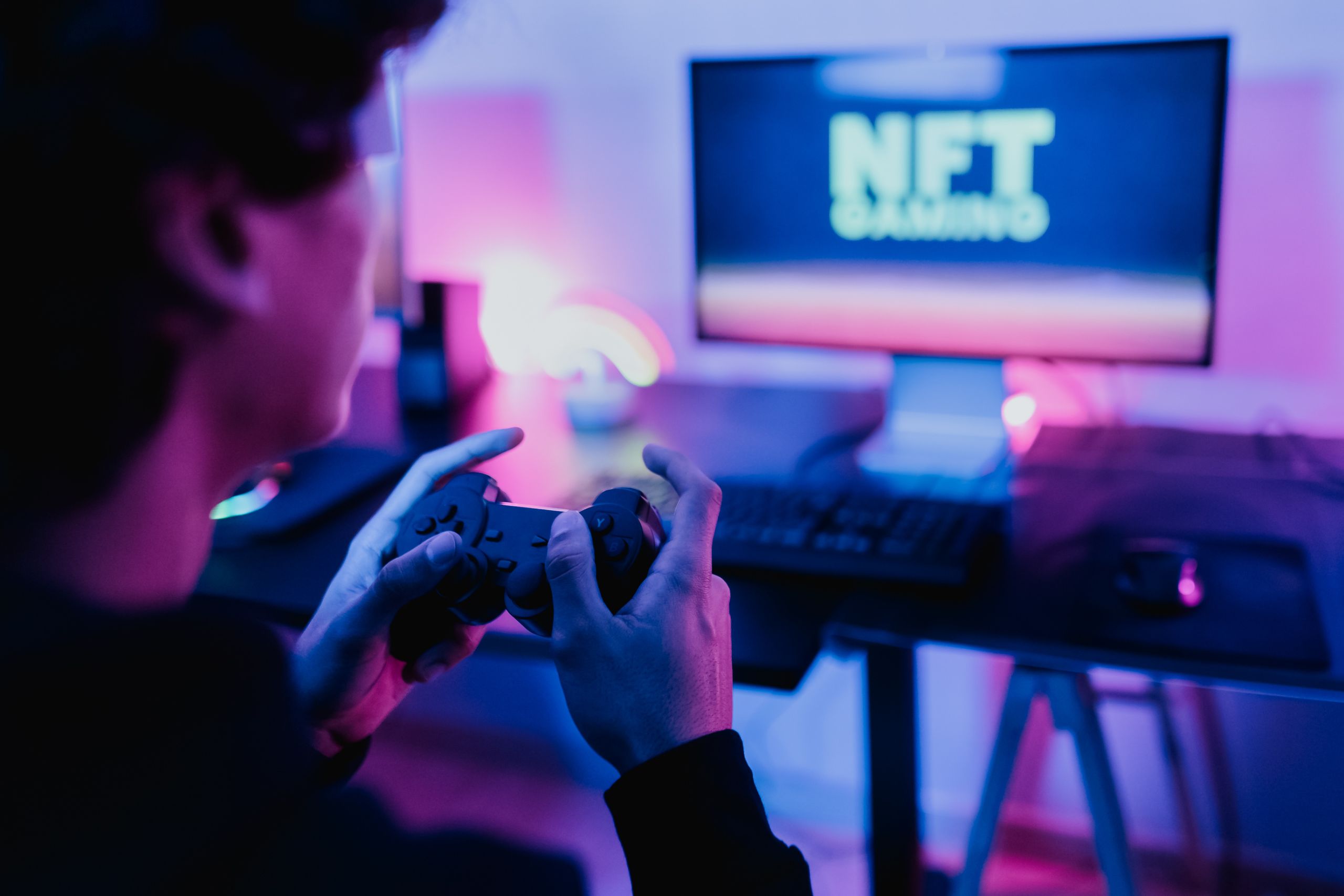The world of gaming is constantly evolving, and one of the latest trends making waves is the integration of Non-Fungible Tokens (NFTs) into virtual assets. But what exactly are NFTs and how are they shaping the future of gaming?
In recent years, NFTs have gained significant popularity, particularly in the art world, where digital artworks are being sold for millions of dollars. However, their potential extends far beyond the realm of art, and the gaming industry is starting to take notice.
NFTs have the potential to revolutionize the gaming industry, providing players with true ownership and unique virtual assets that can be bought, sold, and traded. With the rise of blockchain technology, NFTs offer a secure and transparent way to authenticate and track ownership of these digital items. This opens up a world of possibilities for gamers, developers, and collectors alike. In this article, we will explore the exciting potential of NFTs in gaming and how they are shaping the future of virtual assets.
What is the Role of NFTs in Gaming?
In the world of gaming, NFTs (Non-Fungible Tokens) play a pivotal role in revolutionizing the way in-game items are represented and owned. These digital assets are used to authenticate and verify ownership of virtual items, allowing players to truly own and trade their in-game belongings. NFTs also enable the creation of play-to-earn games, where players can earn real-world currency by participating in gameplay and accumulating valuable digital assets. Leveraging blockchain technology, NFTs provide a secure and transparent method for tracking the provenance and ownership of digital items within games.
The impact of NFTs on gaming is significant, empowering players with true ownership of their virtual items and fostering a new wave of game development that embraces decentralized ownership models. Players now have the potential to earn real-world currency through their gaming efforts, further blurring the lines between virtual and physical economies. Game developers are also exploring innovative ways to integrate NFTs into their game economies, unlocking new possibilities for monetization and player engagement.

The Benefits of NFTs in Gaming
NFTs, or non-fungible tokens, have revolutionized the gaming industry by offering a unique way for players to own and trade digital assets.
True Ownership
True ownership in NFT gaming refers to the concept of players having real, immutable ownership of their virtual assets within a game. Unlike traditional gaming, where players do not have true ownership of in-game items, NFT gaming allows players to buy, sell, and trade virtual assets with real-world value. This means that players have full control over their digital possessions and can monetize them as they see fit.
NFTs provide a sense of empowerment to players, as they have the ability to truly own and control their virtual assets. This also opens up opportunities for monetization within the gaming metaverse, as players can create value from their in-game possessions through trading, selling, and leveraging their ownership rights.
Overall, the concept of true ownership in NFT gaming revolutionizes the gaming industry by giving players real control over their virtual assets and creating new opportunities for monetization within the gaming metaverse.
Record of Ownership
NFT gaming collectibles utilize blockchain technology to create a secure and immutable record of ownership. Each digital asset is represented by a unique token on the blockchain, showcasing its individuality and irreplaceable nature. This record of ownership ensures that the provenance and authenticity of the NFT can be traced back to the original creator, establishing its value and desirability within the gaming community.
Digital scarcity is a key factor in the appeal of NFT gaming collectibles, as the limited availability of these unique assets makes them highly sought after. The transparent and decentralized nature of blockchain technology also adds to the authenticity of NFTs, providing a level of trust and legitimacy in the ownership and transferability of these digital assets across various games and platforms.
Overall, NFT gaming collectibles create a new paradigm for ownership and authenticity in the digital world, emphasizing the value of rarity and uniqueness in the gaming community.
Enhancing the Gaming Experience
Blockchain technology and NFTs have revolutionized the gaming experience by providing true ownership of virtual items, enabling players to earn income through in-game activities, and offering secure and transparent transactions. With blockchain technology, players have the ability to truly own their in-game assets, preventing fraud and ensuring the value of their digital possessions. NFTs allow for unique, one-of-a-kind items that can be bought, sold, and traded securely on the blockchain.
Moreover, digital identity and reputation are enhanced through blockchain technology, allowing players to build a trustworthy and verifiable gaming persona. This provides a more secure and personalized gaming experience for players. Additionally, players have more control over their in-game assets, as they can easily transfer or sell them without the fear of fraud or unauthorized transactions.
Furthermore, interoperability is improved through blockchain, allowing players to use their virtual items across multiple games and platforms. This increases the value of their assets and expands the gaming experience. In conclusion, blockchain technology and NFTs have significantly advanced the gaming industry by providing true ownership, enhancing digital identity, and offering a more secure and profitable gaming experience for players.
Opening Opportunities for Players and Developers
NFTs in gaming are revolutionizing the way players and developers interact and creating new, lucrative opportunities. The concept of cross-game compatibility and interoperable items allows players to use their NFT items in multiple games, enhancing their overall gaming experience. This also opens up collaborative opportunities for artists, musicians, and brands to create unique, limited edition NFTs for games.
For players, NFT gaming offers a chance to truly own and invest in their in-game assets, with the potential for real-world value. It also provides a more immersive and personalized experience, as they can customize their gaming experience with unique, one-of-a-kind items. For developers, NFTs offer a new source of revenue and an opportunity to incentivize player engagement by rewarding them with valuable NFTs. Collaborations with artists, musicians, and brands can also enhance the overall gaming experience, offering exclusive, high-quality content.
Increasing Real-World Value for Digital Assets
Tokenizing real-world assets can significantly increase the value of digital assets by unlocking liquidity, facilitating fractional ownership, and streamlining the buying and selling process. Through tokenization, real-world assets such as real estate, fine art, and other valuable items can be represented as digital tokens on a blockchain, allowing for easier and more efficient trading. This increased liquidity can drive up the value of digital assets as they become more easily accessible to a broader range of investors.
Moreover, tokenization also enables fractional ownership, allowing multiple investors to own a share of an asset, which was previously only affordable to a select few. This democratization of ownership can drive up the demand for digital tokens representing real-world assets, thereby increasing their value.
Additionally, tokenization opens up opportunities for increased access to unique and valuable assets for collectors, who are now able to invest in fractions of high-value items. Furthermore, it offers creators innovative ways to monetize their physical creations in the digital realm, such as selling digital tokens representing their art pieces or collectibles. Overall, the tokenization of real-world assets holds immense potential for increasing the value of digital assets by providing greater liquidity, fractional ownership, and new avenues for monetization.
How Can Blockchain Technology Help?
Blockchain technology can revolutionize the gaming industry by offering benefits such as increased security, ownership of in-game assets, and more control for players. With blockchain, in-game assets can be tokenized, allowing for true ownership and the ability to transfer assets across different games or platforms. This gives players more control over their investments and creates opportunities for secondary markets. Additionally, blockchain can improve transaction security by providing a transparent and tamper-proof ledger.
However, there are potential drawbacks to consider. The complexity and scalability of implementing blockchain in gaming systems may pose challenges. Moreover, the decentralized nature of blockchain can make it difficult to regulate and enforce compliance with regulations, potentially leading to legal issues.
Overall, blockchain technology has the potential to greatly benefit the gaming industry by enhancing in-game asset ownership, transaction security, and player control. However, it is important to carefully consider the challenges and potential drawbacks before fully embracing this technology.

Conclusion
In conclusion, NFTs represent a new opportunity for gamers and developers alike. With the ability to tokenize in-game items, gamers are able to own their virtual assets and monetize their digital collections more easily than ever before. Developers can also benefit from the increased demand for rare in-game items, allowing them to generate additional revenue and incentivize gamers to play more often. As the technology behind NFT s continues to evolve, we can expect to see more developers and gamers taking advantage of this innovative way of owning virtual assets.

